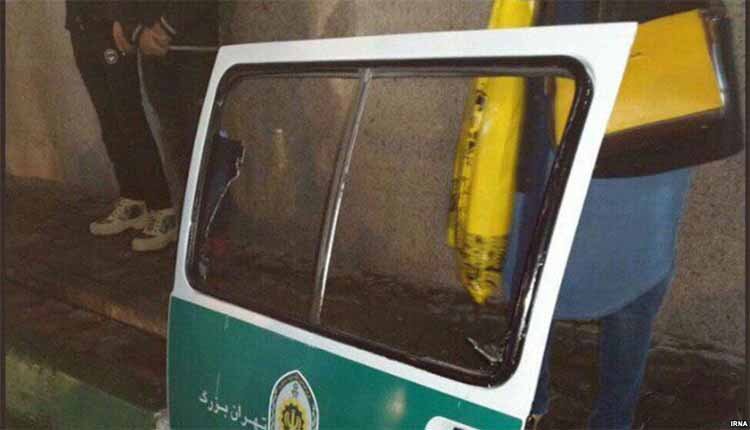Iranian security forces fired shots in the air Friday February 15 evening after clashes between a crowd of people with morality police took place in Narmak, a neighbourhood in northeast Tehran.
The state-run IRNA news agency confirmed the reports On Saturday, February 16, 2019, stating that residents had a clash with morality enforcement agents.
According to witnesses, the morality police agents stopped two young women for violating hijab rules, and tried to arrest them. However, the women protested and onlookers intervened to defend the women and prevented the morality police.
Passersby intervened and ripped one of the vehicle’s doors to free the women.
The morality police resorted to firing in the air to to disperse the crowd.
IRNA says the police “were forced” to fire shots in the air. The news agency also confirmed the video taken by mobile phone from the scene of the clash.
The suppression of women under the pretext of ‘mal-veiling’ is a systematic and state-supported approach to violence against women in Iran.
In February, Iran said it had arrested 29 women for protesting obligatory hijab.
A video clip disseminated in the social media on April 18, showed at least four Guidance Patrols attacking four young women in a park, beating and shoving them around for improper veiling and refusing to get on the Patrol’s van. One of the young women suffered from a heart condition and went unconscious as a result of the beatings.
The video clip rapidly went viral and raised public outrage in Iran and around the world so much that a number of regime officials including the Minister of Interior had to speak out against the patrols’ savagery and promise to follow up the case and have the involved agents punished.
Who are “morality police”?
Iran has had various forms of “morality police” since the 1979 Islamic Revolution, but the Gasht-e Ershad are currently the main agency tasked enforcing Iran’s Islamic code of conduct in public.
Their focus is on ensuring observance of hijab – mandatory rules requiring women to cover their hair and bodies and discouraging cosmetics.
They are empowered to admonish suspects, impose fines or arrest members of the public, but under reforms that come into force this year, will soon no longer be able to do any of these things.
Instead, 7,000 undercover Gasht-e Ershad agents will be deployed to report suspected transgressions to the police, who will decide whether to take action.
The Gasht-e Ershad is thought to draw a lot of its personnel from the Basij; it also includes many women.











